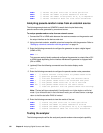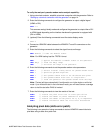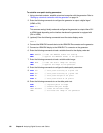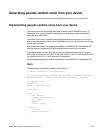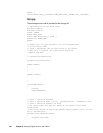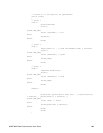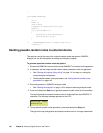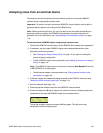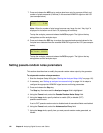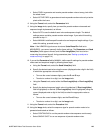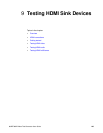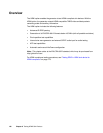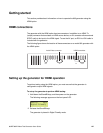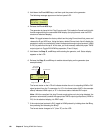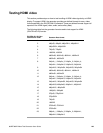
142 Chapter 8 Analyzing Digital Sources and Cables
7. Press and release the ACS key to analyze pixel error rate (in errors per billion) and
number of pixels measured (in billions) in the received HDMI/DVI signal on the LCD
(see example below).
Note: When the number of pixel errors becomes very large, the text “Very high” is
displayed in the bottom row of the LCD (replacing the numbers).
To stop the analysis, press and release the ACS key again. The light on the key
extinguishes and the analysis stops.
8. Press and release the DCS key to analyze the expected and reported values for the
first pixel error detected from the received HDMI/DVI signal on the LCD (see example
below).
To stop the analysis, press and release the DCS key again. The light on the key
extinguishes and the analysis stops.
Setting pseudo-random noise parameters
This section describes how to modify the pseudo-random noise output by the generator.
To set pseudo-random noise parameters:
1. Start the Analyzer Setup Utility (see “Starting the Analyzer Setup Utility” on page 112).
2. If necessary, see “Setting up analyzer to measure timing” on page 114 for steps to
configure the appropriate HDMI/DVI signal source and timing parameters.
3. Press and release the Step key.
The Step key illuminates and the Analyzer Images field is highlighted.
4. Using the Format knob, select the Pseudo Random Noise Setup field.
5. Using the Image knob, specify whether to enable (ON) or disable (OFF)
pseudo-random noise.
If set to OFF, pseudo-random noise is disabled and all associated fields are disabled.
6. Using the Format knob, select the Advance after Every field.
7. Using the Image knob, specify how you want pseudo-random noise generated, as
follows:
PER: pels/billion
4.255 0.88
original: 40018C
1st error: FFFFFF



